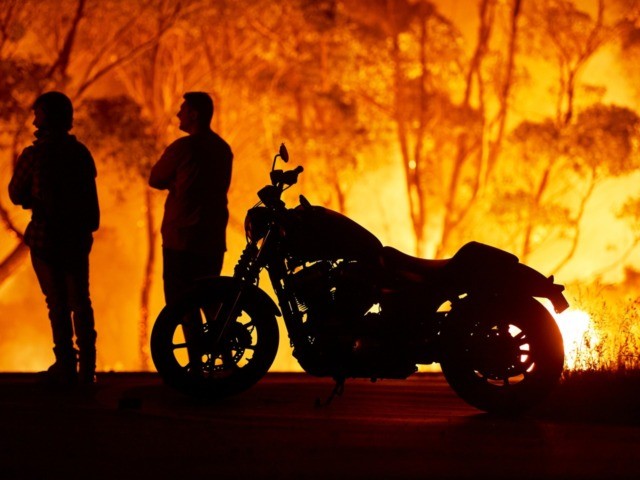Climate alarmists are pinning specific extreme weather events on global warming, insisting they would have “almost no chance of happening without human-induced climate change.”
“The planet is showing signs it’s in peril,” declares a Reuters article Thursday. “In recent weeks, the world has seen ferocious wildfires in the U.S. West, torrential rains in Africa, weirdly warm temperatures on the surface of tropical oceans, and record heat waves from California to the Siberian Arctic.”
Whereas in recent years, a certain circumspection prevented scientists from attributing specific weather events to climate change, that is starting to change, the article reveals.
Joe Biden / YouTubeEvent attribution — or the ability to accurately link a given weather phenomenon to manmade global warming — has been considered exceedingly risky at best and completely unreliable at worst, even according to true believers.
At a meeting of climate scientists at Oxford in 2012, one participant argued that, given the insufficient observational data and the coarse and mathematically imperfect climate models used to generate attribution claims, they are “unjustifiably speculative, basically unverifiable and better not made at all.”
Nature Magazine felt compelled to conclude at the time that “better models are needed before exceptional events can be reliably linked to global warming.”
Apparently, some alarmists feel that that time has finally arrived.
“We are seeing the emergence of some signals that would have had almost no chance of happening without human-induced climate change,” Sonia Seneviratne, a climate scientist at Swiss university ETH Zurich, told Reuters.
“What seemed like an established truth that you cannot attribute a particular extreme weather event to climate change is less and less true,” she added.
Not all scientists agree, of course.
“Extreme event attribution can tell us whether global warming made an event more likely or more severe, but it can’t tell us if global warming ‘caused’ an event in a yes-or-no sort of way,” states the official website of the National Oceanic and Atmospheric Administration (NOAA).
One of the central problems with extreme event attribution is that it is based on models and simulations rather than on observation and fact. Since it deals in probabilities rather than direct, measurable causality, it provides no scientific proof of causality and will always require belief.
Skeptics of extreme event attribution will always point to historical climactic shifts — some of them massive — as well as past extreme weather events and ask the question: how was that possible before humans began emitting greenhouse gases in any significant way?
Another question is why only certain extreme weather phenomena are not increasing but are staying stable or diminishing.
In late August, well-known climate activist Michael Shellenberger reported that hurricanes are not increasing in frequency and that “deaths from natural disasters are at their lowest point in 120 years.”
Contrary to much of the hype found in mainstream media, Mr. Shellenberger — a Time magazine Hero of the Environment and winner of the 2008 Green Book Award — wrote in Forbes that “hurricanes, floods, and other natural disasters aren’t getting worse. They’re getting better. Much better.”
Last June, Shellenberger caused a stir when he issued a public apology on behalf of climate scientists and environmentalists for contributing to panic over the supposed horrors of global warming.
On behalf of environmentalists everywhere, “I would like to formally apologize for the climate scare we created over the last 30 years,” he wrote.
Kurt Zindulka / Breitbart NewsAs an Expert Reviewer for the Intergovernmental Panel on Climate Change (IPCC), “I feel an obligation to apologize for how badly we environmentalists have misled the public,” Shellenberger wrote.
In his essay, Shellenberger listed 12 climate “myths” that have been etched into the modern psyche, but which have no basis in scientific fact.
“Humans are not causing a ‘sixth mass extinction,’” he wrote; the Amazon “is not ‘the lungs of the world,’” and climate change “is not making natural disasters worse.”
“Fires have declined 25% around the world since 2003,” he noted, and the amount of land we currently use for meat “has declined by an area nearly as large as Alaska.”
Seeing how terrified and completely misguided people have become about the reality of climate change, Shellenberger issued an extended formal apology for environmentalist “fear-mongering” in the form of a book, Apocalypse Never: Why Environmental Alarmism Hurts Us All.

COMMENTS
Please let us know if you're having issues with commenting.